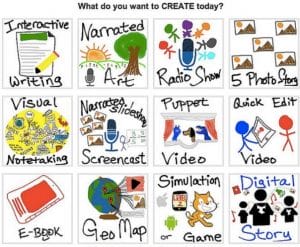Free CC0 public domain image source here
In today’s rapidly evolving educational landscape, the role of librarians has transcended the traditional boundaries of book management and information retrieval. These professionals are poised to become indispensable assets in the quest to empower students and enhance the overall academic experience.
Librarians as Multiskilled Individuals:
Librarians must be recognized as individuals with a diverse range of skills, ready to evolve and grow alongside the changing needs of schools. Beyond their expertise in managing library resources, they can:
1. Support Research Projects:
Librarians can guide students and teachers through complex research projects, providing valuable insights into information sources, data analysis, and effective research methodologies and working as partners in Students’ Research Projects including ethical use of AI tools as visibly stated in the AASL Standards.
2. Teach Design and Use of AI Tools
As artificial intelligence continues to shape the future of education, librarians can play a vital role in introducing and training students on the effective use of AI-powered tools for learning and productivity in partnership with teachers, as cited by Van Brummelen and all.
3. Teach EAL or Theory of Knowledge
According to L Carrol, Librarians can leverage their extensive knowledge and pedagogical skills to facilitate the teaching of English as an Additional Language (EAL) or the interdisciplinary subject of Theory of Knowledge, enriching the academic experience for students, as stated in the article, Librarians as Facilitators of Theory of Knowledge as recommended by the IBO.
4. Run Enrichment Programs
Librarians can design and implement engaging enrichment programs based on the diverse interests of the student body, fostering a love for learning and cultivating well-rounded individuals, like publication centers, media creation centers, emotional wellbeing activities or more can be encouraged and supported by the school administration.
Reasons Why School Heads May Not Share This Perspective
Despite the clear benefits of librarians as multifaceted professionals, some school heads may not fully embrace this vision. This reluctance can be attributed to several factors:
1. Lack of Understanding:
Some school leaders may have a limited understanding of the evolving role of librarians in modern educational settings, viewing them primarily as custodians of books rather than as strategic partners in academic advancement, as stated by Principal Scott Back in the Knowledge Quest post.
2. Budgetary Constraints
School budgets are often stretched thin, and investing in the professional development and expanded responsibilities of librarians may not be a top priority for some administrators.
3. Resistance to Change:
Implementing a new paradigm of librarian roles can be perceived as a significant organizational change, which some school heads may be hesitant to embrace due to a preference for maintaining established practices.
4. Scarce Evidence
While there is growing research highlighting the positive impact of librarians’ expanded roles, some school leaders may require more concrete evidence and case studies to fully recognize the potential of this approach.
By addressing these concerns and advocating for the multifaceted nature of librarians, school leaders can unlock a world of possibilities for their institutions, empowering both students and teachers to thrive in the ever-evolving landscape of education.






